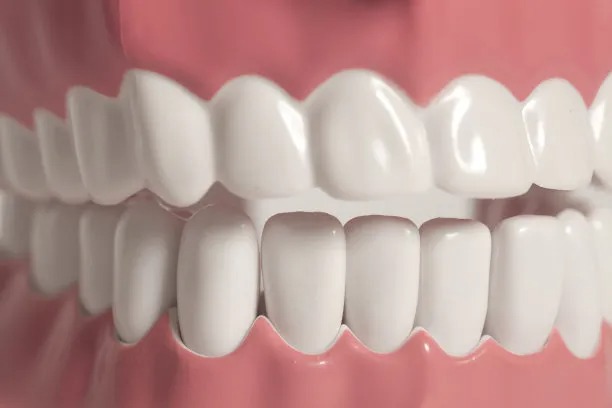Summary: Dental fillings serve as a crucial treatment for restoring teeth affected by decay or damage. This article outlines essential precautions every patient should know before undergoing this procedure for optimal oral health. First, it covers the importance of thorough communication with your dentist, allowing for a personalized approach to treatment. Next, it emphasizes the necessity of adhering to pre-procedure instructions to ensure a smooth process. It also highlights the significance of understanding different filling materials and their implications for long-term oral health. Finally, it addresses aftercare routines that can help maintain the integrity of dental work. Following these precautions will promote better outcomes and a healthier smile.
1. The Importance of Patient-Dentist Communication

Effective communication with your dentist is integral to ensuring a successful dental filling experience. Patients should come prepared with questions pertaining to the procedure. Discussing any fears or anxieties can help the dentist tailor the approach to suit your emotional comfort level.
Moreover, sharing your complete dental history, including allergies, previous treatments, and current medications, allows the dentist to make informed decisions. This information is key in preventing complications during the process.
Lastly, clarity about the procedure’s details and expected outcomes will help you enter the dental chair with confidence. A clear understanding of what to expect can significantly reduce pre-appointment anxiety.
2. Pre-Procedure Instructions to Follow
Before getting dental fillings, following specific pre-procedure instructions is crucial for optimal results. Your dentist may advise you on dietary restrictions, typically recommending avoiding food or drink a few hours before your appointment to minimize discomfort during the procedure.
If sedative options are being considered, it’s essential to arrange transportation to and from the appointment since sedation can impair your ability to drive. Ensuring you have a responsible person to accompany you can alleviate worries and make the experience more manageable.
Finally, be sure to maintain excellent oral hygiene in the days leading up to your appointment. Brushing and flossing your teeth diligently can help reduce bacteria levels, ensuring that the filling procedure runs as smoothly as possible.
3. Understanding Dental Filling Materials
Dentists offer various filling materials, each with its advantages and disadvantages. Understanding these materials is crucial for making informed decisions that align with your long-term oral health goals. For example, amalgam fillings are durable and cost-effective but less aesthetic compared to tooth-colored composites.
Composite resin fillings offer a natural appearance, blend well with your teeth, and can be an excellent choice for visible areas. However, they may not be as long-lasting as amalgam fillings and can be more expensive.
Moreover, discussing newer materials like glass ionomer and resin ionomer fillings can be beneficial. These materials are advantageous for specific situations, such as for children or in areas requiring fluoride release.
4. Aftercare for Optimal Oral Health
Post-procedure care plays a significant role in the longevity of your dental fillings. Patients should avoid hard foods immediately after the treatment for at least 24 hours to allow the filling to set correctly and minimize discomfort.
Establishing a routine for post-filling oral hygiene is equally important. Patients should gently brush and floss their teeth, taking care to avoid the filled area for the first few days as it may be sensitive.
Finally, scheduling follow-up appointments allows the dentist to assess the filling’s effectiveness and make any necessary adjustments. Regular check-ups will further enhance your overall oral health.
Summary: The essential precautions before getting dental fillings are crucial for ensuring a successful procedure. Prioritizing clear communication with your dentist, adhering to pre-procedure guidelines, understanding filling materials, and maintaining aftercare will significantly contribute to a positive outcome.
Taking these steps will not only enhance your dental experience but also promote long-term oral well-being. Remember, proactive measures can lead to lasting rewards for your smile!
This article is compiled by Vickong Dental and the content is for reference only.
Vickong Dental
Vickong Dental is a large medical group established in Hong Kong in 2008 by professors from well-known medical universities in Guangdong and Hong Kong, as well as medical doctors from key national '985' universities (including Master's supervisors and senior professors). The chain of branches brings together expert dentists with PhDs and Master's degrees from Hong Kong and Mainland China, committed to providing high-quality dental treatment.
"Vickong Dental Practices the University Motto of 'Healing and Serving Society,' with a Stable Operation for Sixteen Years. It Has Been honored with Hong Kong Enterprise Leaders's Choice,' and is a Global Trusted Implant Center for the Nobel Implant System. Recommended by Hong Kong Metro Broadcast and Guangdong Television, it Serves Customers from Over Thirty Countries and Regions, Gaining the Trust and Favor of Citizens from the Guangdong-Hong Kong-Macau Greater Bay Area and Surrounding Cities.

Thousands of customers' unanimous praise
The most recognized and highly recommended dental service by customers in the Guangdong-Hong Kong-Macau Greater Bay Area
We Ensure You Receive Detailed Care and Attention Here
Hong Kong standards, Shenzhen prices, Your Trusted English-speaking dentists

Vickong Dental Medical-Grade Instrument Disinfection Process
Vickong Dental Medical-Grade Instrument Disinfection Process

Vickong Dental Chain: A Warm and Comfortable Environment for Treatment






Appointment Hours

Q&A
Why choose Vickong Dental?
Vickong Dental practices the university motto 「Medicine to Benefit Society」, with each branch bringing together highly qualified dentists with doctoral and master’s degrees from Hong Kong and the Mainland, and has maintained seventeen years of steady operation。Recipient of 「2024 Hong Kong Enterprise Leaders Brand」, 「2025 Hong Kong Enterprise Leaders Brand」, a Nobel Biocare Global Trusted Implant Center, and a brand recommended by Metro Radio Hong Kong and Guangdong TV。
To date, we have served customers from more than thirty countries and regions,earning exceptionally high word-of-mouth recognition and trusted recommendations from residents across the Guangdong-Hong Kong-Macao Greater Bay Area and surrounding cities
We have eight major branches in Zhuhai、Shenzhen,and a consultation and service assurance center in Hong Kong,so you can book a free consultation at any time for any questions,which is very reassuring.
If I do not accept the quotation after the CT scan, will I be charged??
No! As long as the actual treatment has not started, you will not be charged any fees.
Will there be any additional charges during the treatment process?
No, there won’t be any additional charges. Before treatment begins, we will clearly explain the treatment plan and its corresponding fees. Only after the patient agrees and signs the consent form will we proceed with the dental service.
Can I pay in Hong Kong dollars?
Yes. Vickong Dental accepts payment in Hong Kong dollars. The amount will be converted based on the exchange rate of the day, and the applicable rate will be clearly communicated to you in advance.
Can I reschedule my appointment at any time?
Yes. Please contact us via **WeChat** or **WhatsApp** as early as possible, providing your original appointment time and details, along with your preferred new date and time slot for rescheduling.













